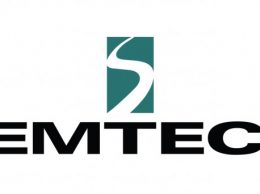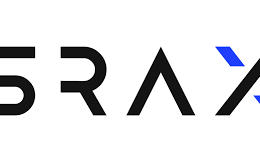Korean firm pays $170M to get toehold in U.S. with K-Swiss
IN THIS ARTICLE
- Banking & Finance Topic
- Stephen Nellis Author
By Stephen Nellis Friday, January 25th, 2013
After 47 years, the K-Swiss brand might be taking its first steps into the sunset.
Westlake Village-based K-Swiss said Jan. 17 that it has agreed to a $170 million buyout by South Korean fashion and retail conglomerate E-Land World Limited.
The sale comes after K-Swiss, the maker of the iconic white footwear that was the world’s first all-leather tennis shoe when it made its debut in 1966, saw its revenues and market share decline precipitously. K-Swiss failed to become a serious competitor with Nike or Adidas in the athletic realm, and its Palladium line of fashion boots never caught on.
About 200 of K-Swiss’ 600 employees work in the United States. The company did not respond to a Business Times request for comment about what would become of those workers or the company’s headquarters. In a prepared statement, CEO Steve Nichols said the company’s new owners “will provide K-Swiss with the resources and scale to return to its former performance levels and to further maximize Palladium’s potential.”
But at least two observers are skeptical that the ultimate intention of the deal is to bolster the K-Swiss name.
“It’s going to cost a lot of money to revive the K-Swiss brand,” said Sam Poser, a Sterne Agee analyst who tracks the footwear industry. “Neither brand was where it needed to be, and they didn’t have enough money to get it there.”
Sung Won Sohn is an economist at CSU Channel Islands who is also on the board of directors at fashion retailer Forever 21 and is a prominent figure in the Korean-American business world. He said that E-Land is a powerhouse in South Korea that is likely looking for ways to crack the American markets with the large stable of brands that it already owns.
“Not too many people in the U.S. have heard of E-Land or what they sell,” Sohn told the Business Times. “I wouldn’t be surprised if they pretty much discard the brands that K-Swiss has and simply try to put [E-Land’s own brands] on the shelves.”
Sohn said it’s also possible that the brands will be sold in both directions and that K-Swiss’ existing talent would be tapped to come up with new ones. But shelf space is a battle that K-Swiss has been losing in recent years, and it shows in the company’s share prices.
The $4.75 a share offer from E-Land is a significant premium over the $3-range shares have traded at recently. But K-Swiss stock was in the $35 range in 2006, and even by mid-2011 it hovered above $10. Prices started to tumble in mid-2011 when the company announced a worse-than-expected $20 million quarterly loss. Its cumulative losses between 2009 and 2011 were $160 million.
“They were spending too much money and the sales fell apart,” Poser said. “They got a lot of order cancellations and it went bad.”
Part of what the money went toward was bold marketing. An online marketing campaign featured Kenny Powers, a fictional HBO character on “Eastbound & Downtown” who plays a washed-up baseball pitcher, mounting an imaginary takeover of the company. In the video, the goateed, mullet-sporting Powers remakes K-Swiss to his intensely vulgar liking, a move the real-life K-Swiss hoped would draw in coveted 18 to 34-year-old males.
“It was a very funny commercial spot. I don’t think it sold any shoes,” Poser said.
He said K-Swiss showed promise in developing athletic shoes. But in an extremely competitive market, that wasn’t enough. “While some of the products improved quite a bit, you’re dealing with the big guys — Nike, Adidas — who have also improved, so it’s very hard to get shelf space,” Poser said.
Swiss brothers Art and Ernie Brunner founded K-Swiss in Los Angeles 1966. In 1986, Nichols led a group of investors to buy the company, which went public in June 1990 and moved its headquarters to Westlake in 1998.
Nichols and his family control the firm through Class B shares that give him 69 percent of the total voting power as of the end of 2011, according to company filings.
That means the deal with E-Land is virtually certain to go through. It requires approval from 80 percent of stockholders. Nichols and the firm’s leadership, which hold about 75 percent of voting power, have already pledged to support it. While the possibility exists that another buyer could make a better offer — which E-Land would have the option to match — the ride is likely over for
K-Swiss’ outside shareholders, many of whom will be taking a significant hit.
“It didn’t surprise me. I thought [Nichols] would try to get a little bit more,” Poser said. “The outside shareholders, they’re happy it’s not a zero.”
Related Articles
 Monday, July 25th, 2022
Monday, July 25th, 2022










